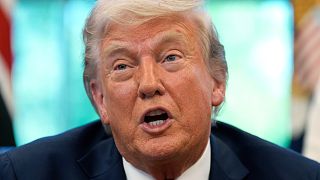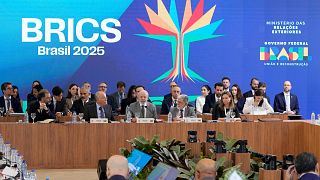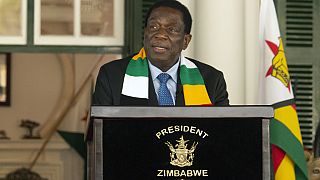Zimbabwe
Inflation in Zimbabwe hiked up in January in dollar and local currency terms, rising by 14.6% and 10.5% respectively in a year-on-year comparison.
According to independent economist Prosper Chitambara, the increase in inflation is due to higher taxes and a regional drought last year, which put pressure on food prices.
The Finance Ministry notably introduced a 0.5% tax on fast food and a 10% tax on sports betting proceeds in its latest budget, which came into effect this month.
Zimbabwe launched a new gold-backed currency in April last year, but it was sharply devalued in September.
Most local transactions still rely on foreign currencies like the U.S. dollar.
Since the devaluation, the Zimbabwe Gold currency has fallen further.
It was trading around 26.3 to the dollar on Tuesday, according to the central bank’s website.













Go to video
Sub-Saharan Africa’s economy set to rebound, but Jobs still a major hurdle
01:36
Migration and refugee policies key to economic growth, Say UN and IMF experts
00:58
Senegal: MP Proposes High Treason Charges Against Former President Macky Sall
Go to video
Foreigners face gold trading ban in Ghana beginning May 1
Go to video
Relative relief in Africa after tariff pause
Go to video
Africa’s trade winds shift amid tariffs, reforms, and regional tensions {Business Africa}